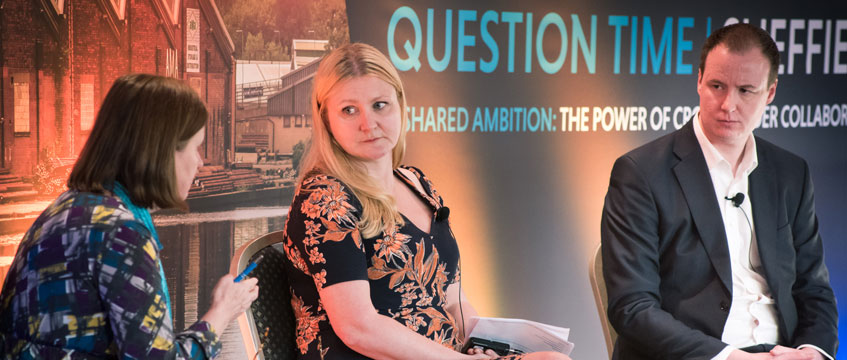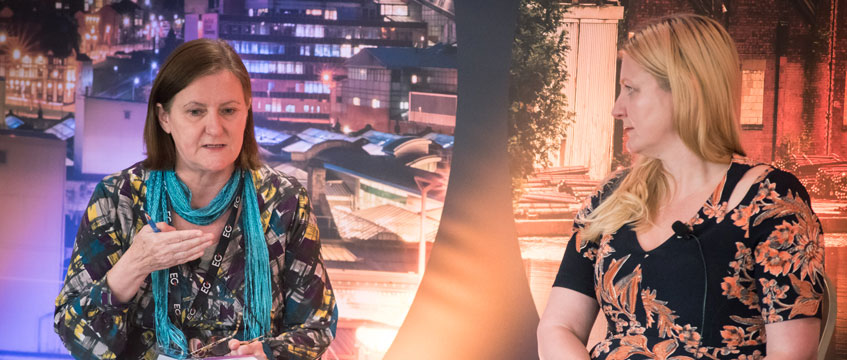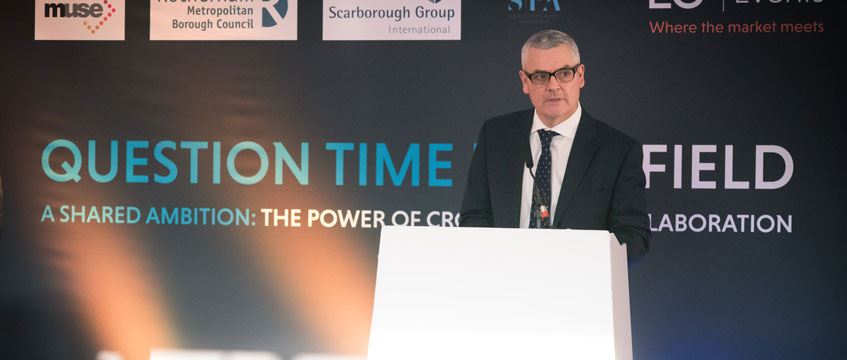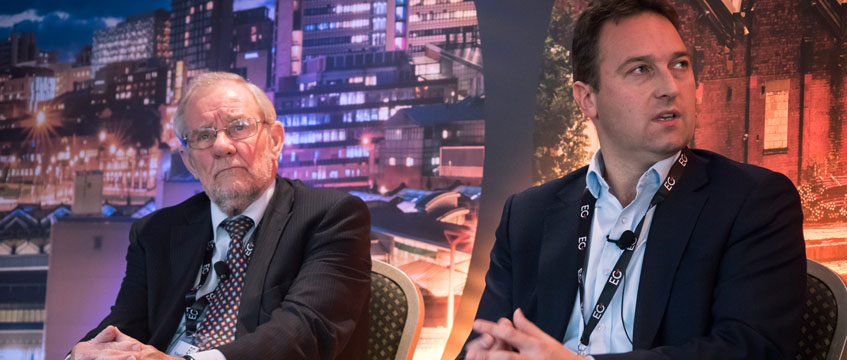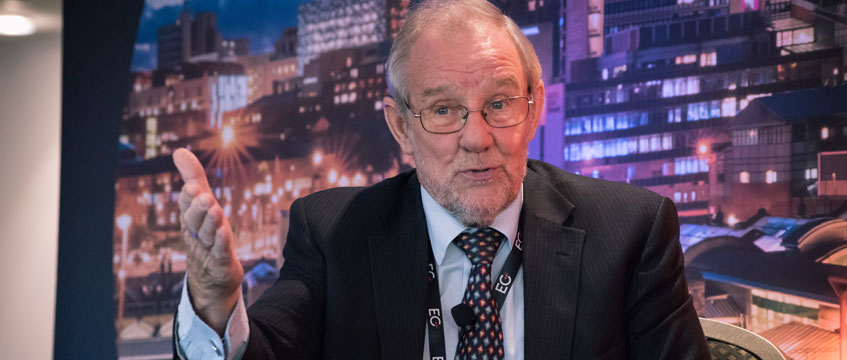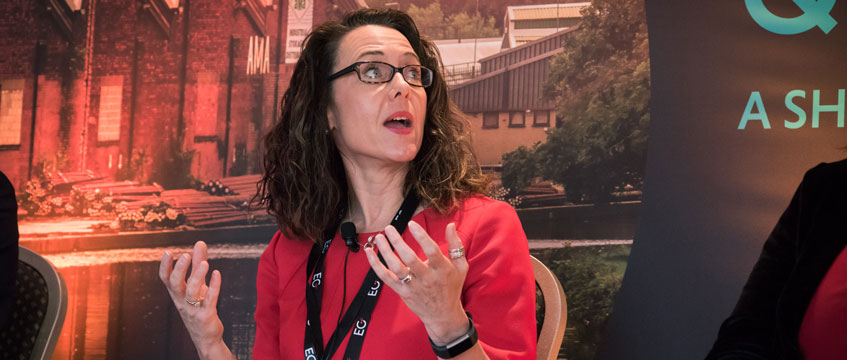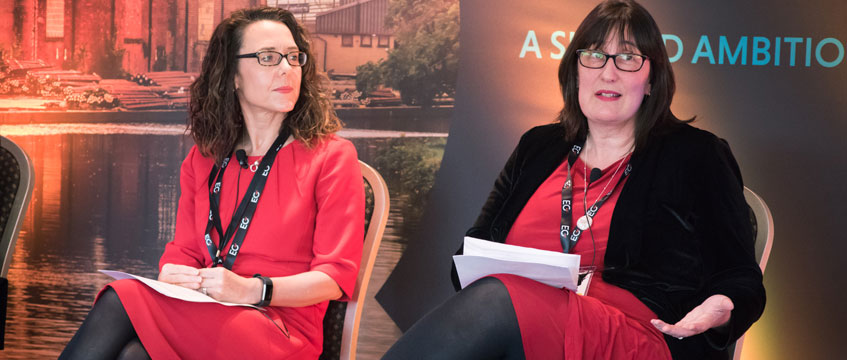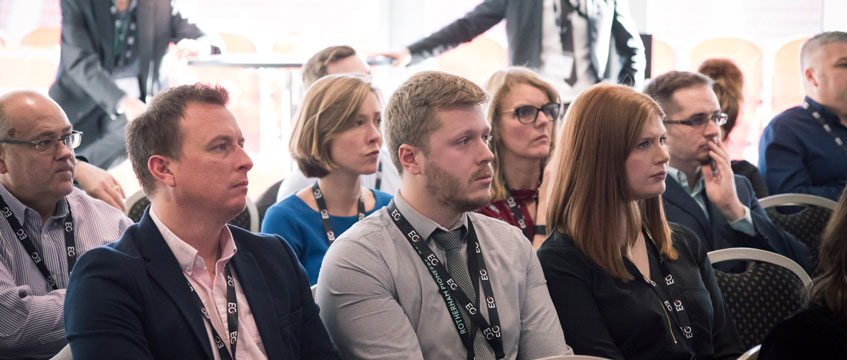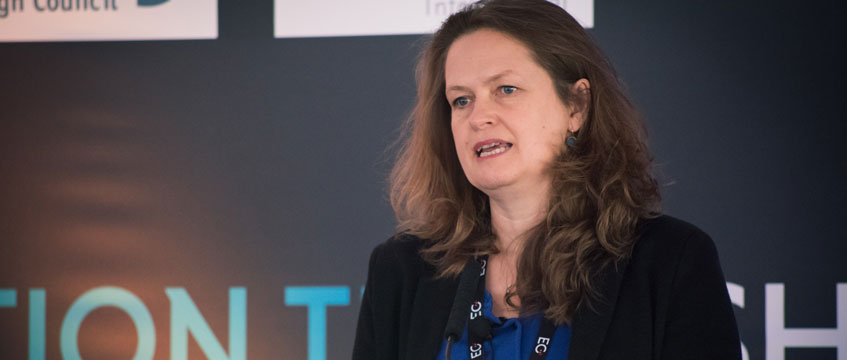Businesses cannot sit and wait for the deadlock in South Yorkshire’s devolution deal to end, although a resolution would give much-needed certainty, a panel argued at EG’s Question Time in Rotherham.
Mark Jackson, director of Spring Real Estate Partners and a consultant to Scarborough Group, said: “[Devolution deals] are helpful when they happen but it’s dangerous for a business to sit and wait for them or rely too much on them.
“The responsibility of the private sector, particularly in development, is to agitate and innovate. It’s a matter of always making sure you’re moving forward rather than being reliant on these things.”
Frustrations around the 2015 Sheffield City Region devolution plan have raged ever since Barnsley and Doncaster voted against it last year, despite previously agreeing to it.
The two local authorities want to pursue a Yorkshire-wide devolution deal, whereas Sheffield and Rotherham want to move forward with the Sheffield City Region deal before approaching a Yorkshire-wide deal.
Lisa Pogson, joint managing director at South Yorkshire-based mechanical services firm Airmaster, said businesses need certainty around the future of the city region.
“I understand that from a political point of view it’s never that simple, but from our point of view, we need to move forward,” she said.
“I’m so proud to be from South Yorkshire, and I think we all should be. Let’s put South Yorkshire back on the map and then go for everything else. It’s not an either/or. Let’s get on with it.”
Doncaster and Barnsley’s U-turn came a week before last year’s EG Question Time in Sheffield, where it was key issue, with panellists likening it to Brexit-driven uncertainty.
Little progress has been made since then, besides the election of Dan Jarvis as mayor of the Sheffield City Region this May – a position that has few powers while the stalemate continues.
Richard Caborn, chairman of the Sheffield Olympic Legacy Park, said: “Politics is the art of the achievable – and we’re not achieving that at the moment. The government is saying: ‘There’s money there, there’s powers there and we’ll unlock it on this basis.’
“That’s got to be the reality of life, whatever people want. Do you then develop further for a regional structure? Obviously you do.”
Despite the deadlock, there was some optimism from the panel.
Sharon Kemp, chief executive of Rotherham Council, said although “we might not be where we want to be” with the devolution deal, people were speaking and there’s a desire for things to move forward. “We have to trust our leaders to be able to work together,” she said.
Caborn, who helped set up the English Regional Development Agencies under former prime minister Tony Blair, said Rotherham and Sheffield had worked together for a considerable amount of time and there was increasing pressure from the business sector to see a deal go through.
The power of cooperation
Although the panel dwelt on the ongoing deadlock, much of the discussion was focused on the benefits of working together.
Councillors Julie Dore, from Sheffield Council, and Chris Read, from Rotherham Metropolitan Borough Council, cited supercar manufacturer McLaren, which signed a deal to base its new factory in Rotherham this May, as an example.
The deal adds to the region’s impressive reputation – it’s home to Boeing’s first factory in Europe – for advanced manufacturing.
Dore said: “It was Sheffield City Council working with McLaren, Sheffield University and Rotherham Council officers as well. But, actually, McLaren is in Rotherham. It is a prime example of where both Sheffield Council and Rotherham Council landed a fantastic global company.”
Few local authorities work together as well as Sheffield and Rotherham, Read added, saying: “We sit next to one of the biggest cities in the country, which has two of the best universities in the country. To somehow put a boundary up and hope that we’ll manage on our own or we’ll be better off on our own is a bizarre concept.”
The trust between all the stakeholders allowed them to land McLaren, adding to the region’s visibility on an international level.
“All of that is to the benefit of Rotherham, and the benefit of Sheffield,” Read said. “You look at (Donald) Trump and you look at Brexit and you look at the difficulties we’ve faced with devolution, and the sentiment in all those things is quite similar.
“It’s about place, a nervousness and a desire to protect your area first, perhaps losing sight of the fact that people don’t live in boxes.”
Turning to working with businesses, Dore said she hoped businesses understood that councils were an “extremely supportive” enabling force for and a partner in finding investment opportunities.
She said that while councils had a responsibility to provide certainty about the economy and the future of the region, businesses needed to make an effort to understand how the public sector works: “My frustration, I have to say to businesses, is when they complain about the processes of local authority.”
She said the two main complaints were education and planning. But if the private and public sectors communicated with each other more, there would be a better understanding of those internal processes and how they could work together on common goals.
It was a point Jackson later repeated in the panel discussion, saying: “Partnership with the public sector is talked about a lot but not done that well by many people. You have to give a bit. You have to learn the principles and the fact that the public sector runs on different petrol.”
Complaining that you need something done in order to get next year’s bonus will not persuade a local authority, Jackson added.
Update on Forge Island
Earlier that morning, Dan Needham, development director at Muse Developments, updated the audience on plans for Forge Island, its £35m regeneration in partnership with Rotherham Council.
He said: “There’s been huge investment down here at [New York Stadium], the council’s new offices at Riverside House, the massive investment in the railway station and Forge Island has got a major role to play.
“Aside from delivering a new leisure development for Rotherham, it will actually link all these fantastic developments better with the town centre.”
Needham said the development, which includes a cinema with up to 11 screens, a hotel and 150 waterside apartments, needs to connect and “celebrate” all the surrounding developments “and make them as harmonious as they can be”.
With the city’s education hub, University Centre Rotherham, opening in September, Needham added that the regeneration plays a role in keeping young people in the area and attracting families back into the centre.
Muse is also working with local independent retail operators to fill at least three of the six planned restaurants and leisure space.
Forge Island has an expected start date of October 2019 and is expected to complete within two years.
2019 wish list
Julie Dore: “I’d like three Premier League football teams. It sounds like a flippant response, but when you look at the impact things like that have the economy, it isn’t just about individual businesses, it’s about everything that we do across Sheffield City Region.”
Chris Read: “I hate to go on about Brexit, but we need that resolved one way or another. Rotherham and Sheffield have benefitted enormously from EU structural and social funds in the past 20 years. The government is talking about replacing that, possibly with a model that can run through a city region, but we’re four months away from leaving and those conversations are still in outline and we don’t know where that investment is going to be.”
Richard Caborn: “I hope we get devolution over the line in the not-too-distant future. I would like to see some other big investments. I’m pretty sure we are going to – without giving too many things away. The development of the digital quarter is going to be huge.”
Sharon Kemp: “To continue to get the message out. You’ve seen the positivity, you’ve seen the plans and how the partnerships are working. It’s around getting that message out to a wider audience and for people to realise how special some of the things that are happening here are.”
The panel
- Richard Caborn, chair, Sheffield Olympic Legacy Park
- Mark Jackson, Scarborough Group
- Sharon Kemp, chief executive, Rotherham Council
- Lisa Pogson, joint managing director, Airmaster
- Chaired by Damian Wild, editor, EG
To send feedback, e-mail karl.tomusk@egi.co.uk or tweet @karltomusk or @estatesgazette








